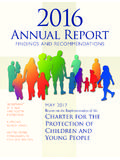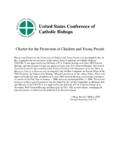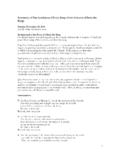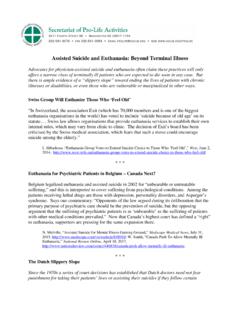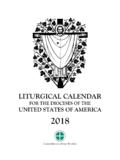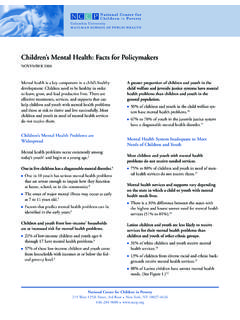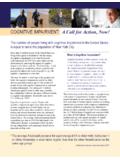Transcription of United States Conference of Catholic Bishops - usccb.org
1 United States Conference of Catholic Bishops To Live Each Day with Dignity: A Statement on Physician-Assisted Suicide To live in a manner worthy of our human dignity, and to spend our final days on this earth in peace and comfort, surrounded by loved ones that is the hope of each of us. In particular, Christian hope sees these final days as a time to prepare for our eternal destiny. Today, however, many people fear the dying process. They are afraid of being kept alive past life's natural limits by burdensome medical technology. They fear experiencing intolerable pain and suffering, losing control over bodily functions, or lingering with severe dementia. They worry about being abandoned or becoming a burden on others. Our society can be judged by how we respond to these fears. A caring community devotes more attention, not less, to members facing the most vulnerable times in their lives.
2 When people are tempted to see their own lives as diminished in value or meaning, they most need the love and assistance of others to assure them of their inherent worth. The healing art of medicine is an important part of this assistance. Even when a cure is not possible, medicine plays a critical role in providing palliative care alleviating pain and other symptoms and meeting basic needs. Such care should combine medical skill with attention to the emotional as well as spiritual needs of those facing the end of life. A Renewed Threat to Human Dignity Today there is a campaign to respond to these fears and needs in a radically different way. It uses terms like death with dignity to describe a self-inflicted death, generally using a drug overdose prescribed by a doctor for the purpose of suicide. This campaign to legalize doctor-prescribed suicide has been rejected by most policymakers in our society.
3 Although Oregon passed a law in 1994 allowing physicians to prescribe deadly drugs for some patients, similar proposals were rejected by legislatures and voters in all other States for many years. The claim of a constitutional right to assisted suicide was firmly rejected in 1997 by the Supreme Court, which upheld state laws against the practice as legitimate safeguards for innocent human life and the ethical integrity of medicine. 2. But after fourteen years of defeats, the assisted suicide campaign advanced its agenda when Washington state passed a law like Oregon's in 2008. The following year, Montana's highest court suggested that physician-assisted suicide for terminally ill patients is not always against public policy. With expanded funding from wealthy donors, assisted suicide proponents have renewed their aggressive nationwide campaign through legislation, litigation, and public advertising, targeting States they see as most susceptible to their message.
4 If they succeed, society will undergo a radical change. Jewish and Christian moral traditions have long rejected the idea of assisting in another's suicide. Catholic teaching views suicide as a grave offense against love of self, one that also breaks the bonds of love and solidarity with family, friends, and God (Catechism of the Catholic Church [CCC], no. 2281). To assist another's suicide is to take part in an injustice which can never be excused, even if it is requested (John Paul II, Evangelium Vitae, no. 66). Most people, regardless of religious affiliation, know that suicide is a terrible tragedy, one that a compassionate society should work to prevent. They realize that allowing doctors to prescribe the means for their patients to kill themselves is a corruption of the healing art. It even violates the Hippocratic Oath that has guided physicians for millennia: I will not give a lethal drug to anyone if I am asked, nor will I.
5 Advise such a plan.. Proponents know these facts, so they avoid terms such as assisting suicide and instead use euphemisms such as aid in dying. The organization leading this campaign has even concealed its agenda by changing its name. The Hemlock Society, whose very name reminded people of the harsh reality of death by poison, has become Compassion and Choices.. Plain speaking is needed to strip away this veneer and uncover what is at stake, for this agenda promotes neither free choice nor compassion. The Illusion of Freedom Does the drive to legalize physician-assisted suicide really enhance choices or freedom for people with serious health conditions? No, it does not, for several reasons. First, medical professionals recognize that people who take their own lives commonly suffer from a mental illness, such as clinical depression.
6 Suicidal desires may be triggered by very real setbacks and serious disappointments in life. However, suicidal persons become increasingly incapable of appreciating options for dealing with these problems, suffering from a kind of tunnel vision that sees relief only in death. They need help to be freed from their suicidal thoughts through counseling and support and, when necessary and helpful, medication. Because the illnesses that cause or aggravate suicidal desires are often overlooked or misdiagnosed, many civil laws provide for psychological evaluation and treatment for those who have attempted suicide. The Catholic Church, as well, recognizes that grave psychological disturbances, anguish, or grave fear of hardship, suffering, or torture can diminish the responsibility of people committing suicide; the Church encourages Catholics to pray for them, trusting in God's mercy (CCC, no.)
7 2282-3). These statements about psychological disturbance and diminished responsibility are also true of people who attempt suicide during serious illness. Yet this is often ignored in proposals authorizing assistance in these individuals' suicides. Many such proposals permit but do not require an evaluation for mental illness or depression before lethal drugs are prescribed. In 3. practice such evaluations are rare, and even a finding of mental illness or depression does not necessarily prevent prescribing the drugs. No evaluation is done at the time the drugs are actually taken. In fact, such laws have generally taken great care to avoid real scrutiny of the process for doctor-prescribed death or any inquiry into whose choice is served. In Oregon and Washington, for example, all reporting is done solely by the physician who prescribes lethal drugs.
8 Once they are prescribed, the law requires no assessment of whether patients are acting freely, whether they are influenced by those who have financial or other motives for ensuring their death, or even whether others actually administer the drugs. Here the line between assisted suicide and homicide becomes blurred. People who request death are vulnerable. They need care and protection. To offer them lethal drugs is a victory not for freedom but for the worst form of neglect. Such abandonment is especially irresponsible when society is increasingly aware of elder abuse and other forms of mistreatment and exploitation of vulnerable persons. Second, even apparently free choices may be unduly influenced by the biases and wishes of others. Legalization proposals generally leave in place the laws against assisting most people to commit suicide, but they define a class of people whose suicides may be facilitated rather than prevented.
9 That class typically includes people expected to live less than six months. Such predictions of a short life are notoriously unreliable. They also carry a built-in ambiguity, as some legal definitions of terminal illness include individuals who have a short time to live only if they do not receive life-supporting treatment. Thus many people with chronic illnesses or disabilities who could live a long time if they receive basic care may be swept up in such a definition. However wide or narrow the category may be, it defines a group of people whose death by lethal overdose is wrongly treated by the law as objectively good or acceptable, unlike the suicide of anyone else. By rescinding legal protection for the lives of one group of people, the government implicitly communicates the message before anyone signs a form to accept this alleged benefit that they may be better off dead.
10 Thus the bias of too many able-bodied people against the value of life for someone with an illness or disability is embodied in official policy. This biased judgment is fueled by the excessively high premium our culture places on productivity and autonomy, which tends to discount the lives of those who have a disability or are dependent on others. If these persons say they want to die, others may be tempted to regard this not as a call for help but as the reasonable response to what they agree is a meaningless life. Those who choose to live may then be seen as selfish or irrational, as a needless burden on others, and even be encouraged to view themselves that way. In short, the assisted suicide agenda promotes a narrow and distorted notion of freedom, by creating an expectation that certain people, unlike others, will be served by being helped to choose death.

